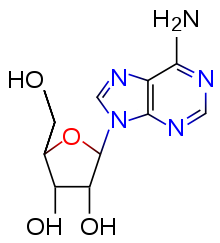The highest dose of caffeine, which fell into the human body, and in doing so he was still alive, was about 100 g
 Bashny.Net
Bashny.Net

Scientists have conducted a series of experiments to find out what happens to a person with an overdose of caffeine and what is its average number, which can be fatal.
Caffeine - class representative xanthine stimulant of the central nervous system (CNS): it is contained in the 60 plant species, and its use is widespread throughout the world.
In small amounts it gives positive effects: vivacity, good mood, increased attention; but as with other CNS stimulants, with immoderate doses of caffeine exhibits negative properties - lots of coffee can trigger a drop in blood pressure, lactic acidosis, tachycardia, and even seizures.

Among researchers there is disagreement, it acts like caffeine, but I do know one thing: Caffeine antagonizes adenosine receptors replacing it on the body's cells. Adenosine found in almost all cells and promotes the supply of oxygen ensures inflammatory reaction and formation of new blood vessels.
Substitution adenosine caffeine stimulates the CNS, heart rate accelerates and acts on the kidneys, which leads to dehydration. Blocking the enzyme named phosphodiesterase leads to a drop in blood pressure, digested liver sugar, potassium, and reduces leukocyte provokes the formation - as a result of the heart is experiencing higher loads.
Also, oxygen starvation of cells of acidosis, together with cramps and low levels of calcium can cause rhabdomyolysis - in fact, one simply begins to break down.
Thus, with moderate consumption (100-200 mg of caffeine per day for each individual norm) coffee is harmless, but more than 600 mg per day can cause negative effects. The highest dose that hit the human body, and in doing so he was still alive, was about 100 g, which is equivalent to 1 200 cups of coffee.
via factroom.ru
Tags
See also
Effect of beer on the human body
Scenarios which can lead to the development of artificial intelligence
The taking statins can cause amnesia
Food that can kill
As refined carbohydrates zachekanivajut our body
Vyacheslav Ivanov: the universe looks at itself through the eyes of people
Bread which is killing us — about the dangers of thermophilic yeast
The British Parliament through the eyes of the servants
Facts about Madonna

















